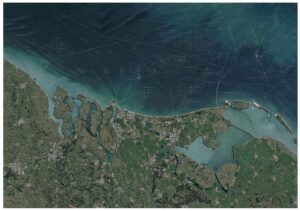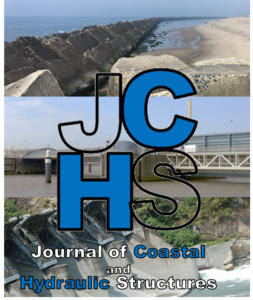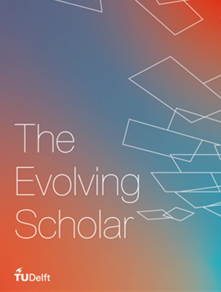Publishing is an intrinsic part of academic life. But why publish at all? The motivation behind the act of publishing is very simple. Teachers and researchers want to freely share their experience and communicate about their findings. It is about advancing science, making impact for a better society and bringing science to not only scientists, but everyone.
Basically, they have a story to tell. And everyone (from scientists to citizens) wants to hear a (great) story.
In 2001, Matthew Arnison describes Open Publishing as “an electronic reinvention of the ancient art of storytelling”. I can only confirm that this definition comes very close to the point.
Open Publishing goes beyond Open Access (free access to all) and includes transparent creation of content, from open (transparent) peer-review, to the use of open infrastructures (wherever it is possible) and innovation.
This is where TU Delft OPEN Publishing comes into play.
TU Delft OPEN Publishing is a diamond open access academic publisher – all publishing costs are covered by the Delft University of Technology. It is also an integral part of the university’s Open Science Programme, with our activities linked with and supporting other themes and projects of the programme.
However, the TU Delft OPEN Publishing platform was created and shaped not only to facilitate Open Access (OA) publications and support Open Science principles but also to help researchers share without boundaries their discoveries through articles or (text)books. The platform takes an important part in the professional and personal development of teachers and researchers.
TU Delft OPEN Publishing’s mission is centred around the researcher as much as their research output. We strive to support and empower authors, editors, reviewers and everyone “telling their stories”.
TU Delft Open Publishing offers a variety of traditional publications: OA journals, Open Books and Open Textbooks. Additionally, it provides many Publishing Services to guide teachers and researchers during their entire publishing journey.
But what is so special about us within the booming academic publishing landscape?

We strive to go “Where No Publisher Has Gone Before”!
Ambitious or Idealistic? Perhaps. The quote adapted from Star Trek: The Next Generation is inspirational and highlights the importance of daring to stimulate innovation.
Launched by the TU Delft Library in October 2019, the TU Delft Open Publishing platform completely adheres to the core business of the library: Free flow of knowledge. The Open Publishing team is keen to embark on a venture of many routes to fulfil our mission.
The team will explore, embrace and validate ideas to serve and be the voice of our community of teachers and researchers. For example, we offer you a space to publish all your scientific research findings, both positive and negative, as all these outputs make a difference in your field.
What have we done so far?
Plan S Compliance
Our biggest priority in 2020 was to ensure full compliance of the platform with Plan S, a new funders’ mandate for open access publishing, and to align our publishing services to efficiently support researchers and teachers. The open publishing team joined forces with colleagues of the TU Delft Library to reach our target.
Get familiar with the publishing guidelines’ requirements for 2021: all you need to know
? New journals
We have launched three Open Access journals.
 Journal of Delta Urbanism (JDU)
Journal of Delta Urbanism (JDU)
JDU is dedicated to discussing future design as a collaborative enterprise of the disciplines of spatial design, ecology, engineering and policy and as a leading method within the research premises of the Delta Urbanism research community.
 Journal of Coastal and Hydraulic Structures (JCHS).
Journal of Coastal and Hydraulic Structures (JCHS).
JCHS is an open community-based journal. All papers are rigorously peer-reviewed research in a double-blind fashion. Its mission is to publish high-level engineering science results in the field of coastal and hydraulic structures.
 The Evolving Scholar (ThES)
The Evolving Scholar (ThES)
ThES is a community-driven megajournal for multidisciplinary and open peer-reviewed publications. ThES is an experimental space for developing new forms of publishing and publications and for fostering ideas. The journal was developed in partnership with Orvium (a CERN spin-off) specialized in accelerating scientific publishing. You can be part of the ThES community today – Join here.
Recognition
We have endorsed and implemented the Contributor Role Taxonomy (CRediT). CRediT describes the levels of input in a publication by using predefined roles such as “funding acquisition”, “software”, “writing”. It is a transparent way to recognize every research contribution besides the classic acknowledgement section in a paper, book or report.
Registered Reports
We support Registered Reports (RR) and strongly encourage our journals to implement RR.
RR is a form of an empirical article in which the methods and proposed analyses are pre-registered and reviewed prior to research being conducted. This format of article seeks to neutralise a variety of inappropriate research practices, including inadequate statistical power, selective reporting of results, and publication bias.
Blog
To further drive transparency and openness, and diversify participation in our work, the TU Delft OPEN Publishing blog was launched to share our thoughts, latest progress, and vision to encourage new partnerships and feedbacks.
What does the future hold?
Plenty. These goals are projected on the roadmap in no particular order:
- Develop meaningful metrics for authors, reviewers and editors/moderators
- Explore new ways to publish theses (e.g. as books), data articles and/or videos
- Incentivize the reuse of educational materials and research studies
- Design and build capacity to serve interactive and dynamic publications
- Explore how TU Delft OPEN Publishing can help support citizen science, scientific research and education done in collaboration with citizens
Stay tuned for more updates on our publishing platform!
Would like you like to be involved? Do you have suggestions or feedback?
Please follow us ? on Twitter @TUDelftOPEN or email researchsupport@tudelft.nl
